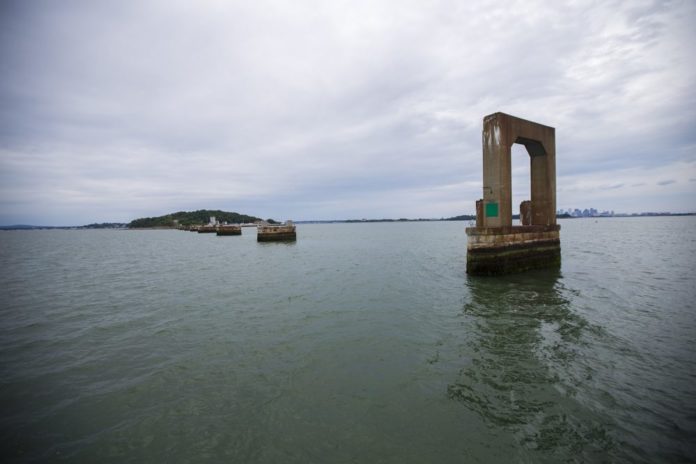|
Mayor Martin J. Walsh announced
the City of Boston has received Superseding Orders of Conditions (SOC) from
the Massachusetts Department of Environmental Protection (MassDEP) to rebuild
the bridge to Long Island. In the ruling, MassDEP determined that Boston’s
proposal meets the performance standards under the Wetlands Protection Act
and minimizes impacts to coastal wetland resources in both Boston and Quincy.
“Our efforts to create a
regional recovery campus on Long Island have always been guided by our
fundamental belief that every person deserves a chance at recovery,”
said Mayor Walsh. “The opioid crisis we’re living goes beyond city
lines, and we welcome everyone’s support as we take action to help those
suffering find their path to a better life. The Long Island Bridge carried
the weight of those in need for more than 60 years and it’s our hope that the
island will once again serve as the sanctuary it’s meant to be.”
The SOC comes after Boston
appealed the Quincy Conservation Commission’s Order of Conditions denying
Boston’s application to rebuild the bridge and Quincy’s appeal of the Boston
Conservation Commission’s granting of the permit.
In 2014, Mayor Walsh made the
decision to close Long Island Bridge to ensure public safety, demolishing the
bridge superstructure. Mayor Walsh then pledged in his 2018 inaugural address
to rebuild it and create a comprehensive, long-term recovery campus on Long
Island.
City of Boston engineers and
consultants have determined that rebuilding the bridge is necessary for
day-to-day operations and emergency service to and from Long Island,
presenting publicly on the plan over the last year, including at the Boston
Conservation Commission, the Quincy Conservation Commission, and community
meetings in both cities.
The bridge will have an estimated
75-year lifespan and will be reconstructed by rehabilitating the existing
piers and placing a new superstructure, along with improving access to the
roadways on both Moon Island and Long Island. After examining a ferry
service, City of Boston engineers and consultants determined that this is not
an adequate option given the environmental impact, cost, and typical timeline
for implementation, and more importantly, the inability of a ferry to support
the required public safety services for a public health campus.
The City of Boston is planning an
innovative and holistic recovery campus on Long Island that will expand
essential recovery services for the region, fill gaps in the continuum of
care and utilize the natural environment to provide a healing space. The City
has contracted with Gensler and Ascension Recovery Services to identify the
types of services, resources and treatment options that would be best suited
for the island and create a master plan for the recovery campus.
Having been in recovery for over
20 years, Mayor Walsh understands firsthand how easily addiction can take
hold and how difficult it can be to recover. In his first term, Mayor Walsh
made expanding access to recovery services in Boston a priority by creating
the Office of Recovery Services to study
substance use in Boston and lead the city’s strategy around substance use
disorders, addiction and recovery. This is the first municipal recovery
office in the nation.
The City has taken a comprehensive
approach to tackle the opioid epidemic, serving people in all stages of the
continuum of care, from providing harm reduction services to ensure people
can maintain health in various aspects of their lives, to connecting people
with beds at rehabilitation facilities, to offering inpatient and outpatient
programming, to long-term peer support for those further along in their
recovery journey.
Continuing these efforts, the City
of Boston filed a complaint in Suffolk Superior
Court against 13 opioid manufacturers, four distributors, and one local
doctor that have contributed to the local opioid epidemic through misleading
marketing and reckless dissemination of opioids that has led to the deaths of more than 830 Boston residents since 2014. As
part of the litigation, the City is seeking to recover both past and future
damages and injunctive relief associated with addressing the opioid epidemic
in Boston.
|










